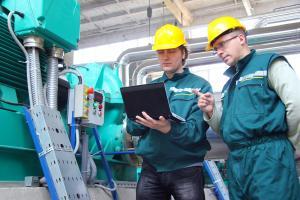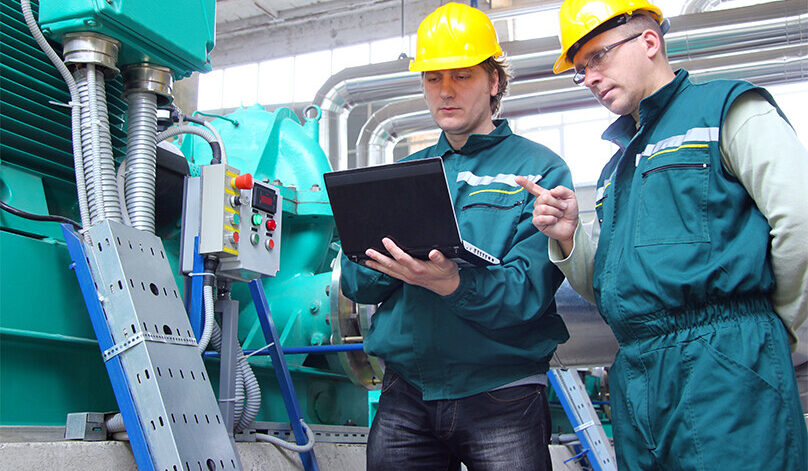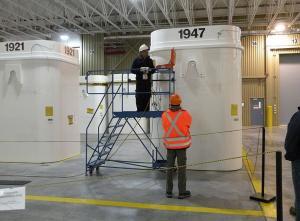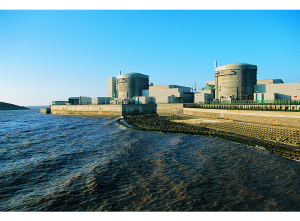
The nuclear industry’s culture of continuous learning
Troy Brown’s job as an authorized nuclear operator is to ensure that a nuclear reactor runs safely for each of his 12-hour shifts at the Bruce Power plant. That’s a big responsibility, because the reactors power Ontario’s grid. But Mr. Brown and his team are backed by rigorous training that keeps them in top form.
Mr. Brown began work at Bruce after two years at college in power engineering. But he had two more years’ training before he was qualified as a nuclear operator, able to work directly with the reactors. And a further three years’ training led him to his current position, where he is the licensed operator in charge of a reactor unit. “There was both class and simulator training, which was intense to say the least, because it deals with worst-case scenarios.” says Mr. Brown. Even today, every fifth week is devoted to refresher courses in a dedicated training centre at the plant.
While Mr. Brown enjoys his work, and sees a lot of opportunities within Bruce Power, he’s well aware that his training makes him valuable throughout the economy. “If I no longer wanted to be in Port Elgin, my power engineering and nuclear background would put me in a good position to get a job in any city.”
 The value of that training makes the nuclear industry work to keep its people, says Ryan Reeson of OPG’s Pickering power plant. “As an operator, you’re sought after; after two years’ training, the company wants you to stay.” He started as a nuclear operator too, but the shift work didn’t agree with him. After a few years, he became a work control team leader, which means that he coordinates the thousands of tasks that must be carried out every week at the plant, so that they don’t get in the way of each other. That requires a bird’s-eye view – which Mr. Reeson’s operator training provided.
The value of that training makes the nuclear industry work to keep its people, says Ryan Reeson of OPG’s Pickering power plant. “As an operator, you’re sought after; after two years’ training, the company wants you to stay.” He started as a nuclear operator too, but the shift work didn’t agree with him. After a few years, he became a work control team leader, which means that he coordinates the thousands of tasks that must be carried out every week at the plant, so that they don’t get in the way of each other. That requires a bird’s-eye view – which Mr. Reeson’s operator training provided.
Pickering is scheduled to shut down in 2020, but Mr. Reeson says there should be ample opportunities for him, either in working on the shutdown itself, or at the nearby Darlington station. “I have a great deal of pride working for this company,” he says. “We’re producing a good that powers our way of life. And the company is good at listening to its people and recognizing its top performers.”
The learning culture extends through the whole industry. Power plants, mines, and fuel-processing facilities hire thousands of tradespeople – from millwrights to electricians – who must keep up their certifications.
It also reaches into the academic world. For example, mining firms such as Cameco and Areva fund learning programs and scholarships that help prepare the next generation of students for work in the industry. And about 30 universities across the country, such as the University of Ontario Institute of Technology, have programs specifically geared to nuclear science and technology.



